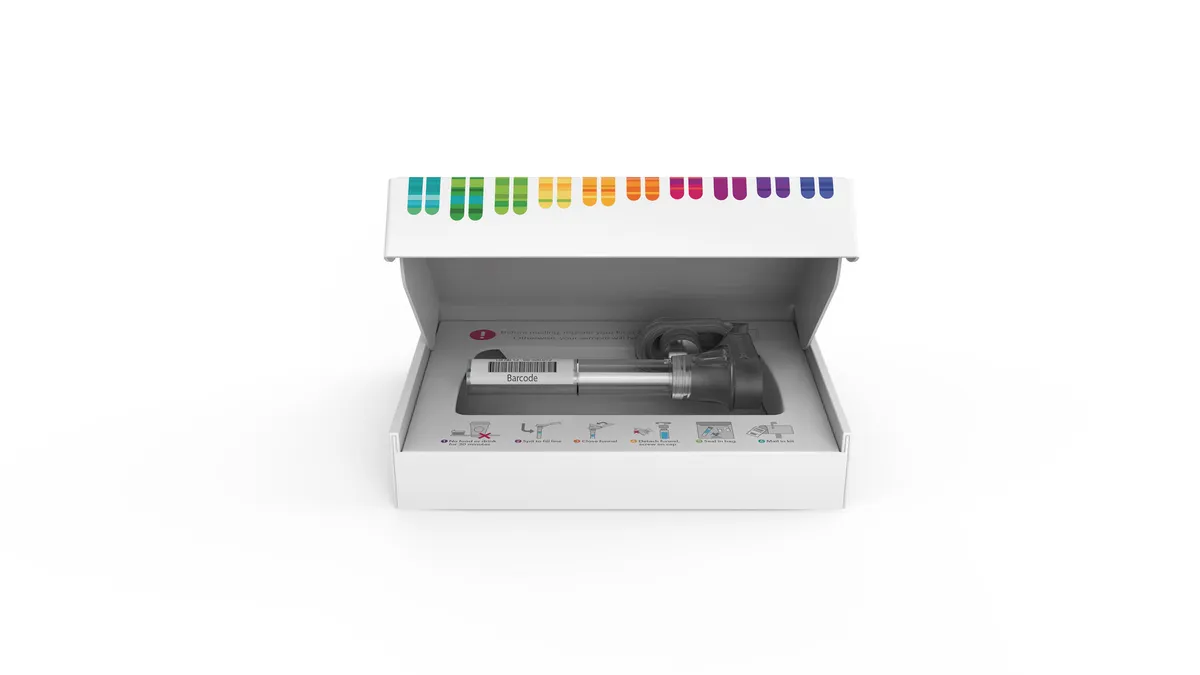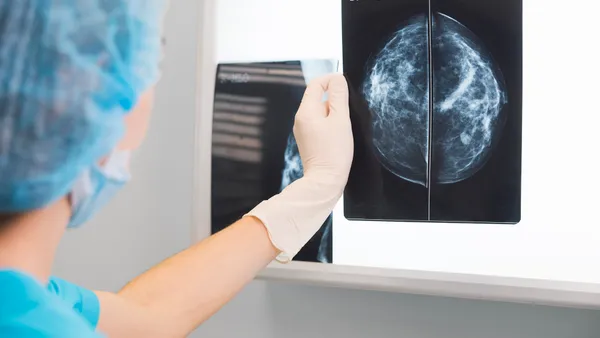Dive Brief:
- Direct-to-consumer genetic testing company 23andMe said Tuesday it received FDA 510(k) clearance for a test for assessing certain genetic variants associated with a hereditary colorectal cancer syndrome.
- The diagnostic looks for the two most common variants, which the company says account for about 80% to 90% of certain variants in people of Northern European descent, found at a rate of 1% to 2% among that population.
- The company's BRCA1/BRCA2 Genetic Health Risk report, which gained De Novo clearance in March 2018, was used as the predicate device for the 510(k) clearance.
Dive Insight:
23andMe has come a long way with FDA since the agency issued a warning letter to the company in 2013 for marketing its Saliva Collection Kit and Personal Genome Service without authorization.
Between 2015 and 2018, the company received four De Novo clearances for its carrier status test, genetic health risk reports, select BRCA1 and BRCA2 variants and pharmacogenetic reports, according to FDA's De Novo database.
MUTYH-associated polyposis, or MAP, is caused by mutations in the MUTYH gene and can increase risk of developing cancers of the colon, rectum and thyroid, according to the American Society of Clinical Oncology.
Carrying both of the targeted MUTYH variants or having two copies of one heightens the risk of developing colorectal cancer to between 43 and 100 percent, according to the company. It also noted that while the risk for people who have just one variant is not certain, it could still be increased in individuals with a family history of colorectal cancer.
The newly cleared MAP product is not yet available, according to the company. In a press release, 23andMe included the caveat that hereditary colorectal cancers only account for about 5% of all colorectal cancer cases. Additionally, 23andMe noted the product doesn't screen for variants tied to Lynch syndrome, the most common inherited cause of colorectal cancer.












